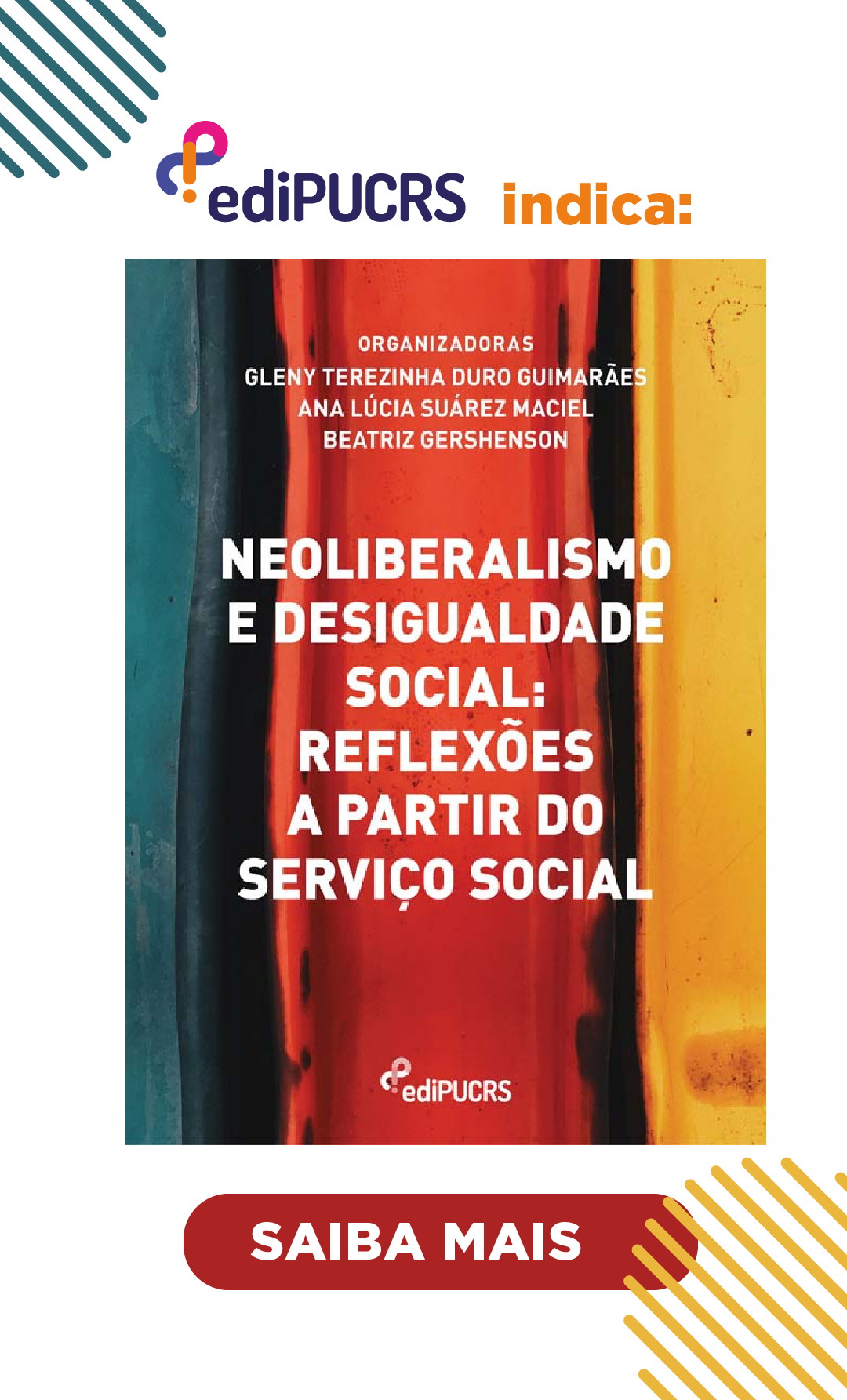Forensic social expertise in family law
reflections for a necessary dialogue between Social Work and Law
DOI:
https://doi.org/10.15448/1677-9509.2024.1.45579Keywords:
Code of Civil Procedure, Family Law, Forensic expertise, Forensic Social Work expertise, Intercession between law and social workAbstract
The Brazilian Code of Civil Procedure provides that when necessary, to clarify specific situations that goes beyond the knowledge of the court, forensic expertise could be realized. In Family Law, forensic social work are usually demanded because, in addition to became an evidence prove in judicial process, it is a way to contribute with the judge decision make by explaining the social-culture and economics experiences of those involved. Trough bibliographic research, but without neglect the practical knowledge of the author who is a social worker at the Court of Justice in Rio Grande do Sul/Brazil, these article aims to contribute with reflections about the intercession between law and Social Work when the social work expertise is demanded by family law. It seeks to expose the apparatus that provides and guides the carrying out of forensic expertises, as well as explain the ethical, methodological and technical framework’s of Social Work that guides and limits the forensic social work expertise. The conclusion reached is the need of mutual respect to the expertise of the different workers in the judicial process, as well as the need of minimum knowledge about each other area.
Downloads
References
BRASIL. Novo Código de Processo Civil Brasileiro. Brasília: Senado, 2015.
BRASIL. Regulamentação da Profissão de Assistente Social. Lei 8.662. Brasília: Senado, 1993. Disponível em: http://www.cfess.org.br/arquivos/CEP_CFESS-SITE.pdf. Acesso em: 18 set. 2020.
CARVALHO, Raul de; IAMAMOTO, Marilda Villela. Relações Sociais e Serviço Social no Brasil: esboço de uma interpretação histórico-metodológica. São Paulo: Cortez, 2001.
CFESS. Atuação de Assistente Sociais no Sociojurídico: subsídios para reflexão. Brasília: CFESS, 2014. Disponível em: http://www.cfess.org.br/arquivos/. Acesso em: 29 jun. 2020.
CFESS. Código de Ética Profissional do Assistente Social. Brasília: CFESS, 1993. Disponível em: http://www.cfess.org.br/arquivos/CEP_CFESS-SITE.pdf. Acesso em: 18 set. 2020.
DIDIER JÚNIOR, Fredie; BRAGA, Paula Sarno; OLIVEIRA, Rafael. Curso de Direito Processual Civil. Salvador: Juspodivm, 2012.
FÁVERO, Eunice. O estudo social: fundamentos e particularidades de sua construção na área jurídica. In: CFESS (org.). O estudo social em perícias, laudos e pareceres técnicos. São Paulo: Cortez, 2003.
FÁVERO, Eunice. Serviço Social no sociojurídico: requisições conservadoras e resistência na defesa de direitos. Serviço Social e Sociedade, São Paulo, n. 131, 2018. Disponível em: https://www.scielo.br/pdf/sssoc/n131/0101-6628-sssoc-131-0051.pdf. Acesso em: 10, set. 2020. DOI: https://doi.org/10.1590/0101-6628.130
FERNANDES, Martha; SHINE, Sidney. O psicanalista na perícia em Vara de Família: um diálogo entre o perito e os assistentes técnicos. In: LAGO, Vivian de Medeiros et all. Práticas interdisciplinares nas varas de família. Belo Horizonte: Artesã, 2021.
GUERRA, Yolanda. A instrumentalidade no trabalho do assistente social. In: SIMPÓSIO MINEIRO DE ASSISTENTES SOCIAIS, Belo Horizonte, maio 2007. Promovido pelo CRESS-6ª Reg.
MARCOMIM, Ivana; MACIEL, Walery Luci da Silva. Instrumental Técnico-Operativo do Serviço Social: livro didático. Palhoça: Unisul Virtual, 2016. Disponível em: https://www.uaberta.unisul.br/repositorio/recurso/14690/pdf/instrumental_tecnico_operativo_ss.pdf. Acesso em: 29 jun. 2020.
MARTINELLI, Maria Lucia; KOUMROUYAN, Elza. Um novo olhar para a questão dos instrumentais técnico-operativos em Serviço Social. Serviço Social e Sociedade, São Paulo, n. 45, 1994.
MIOTO, Regina Célia Tamaso. Perícia Social: proposta de um percurso operativo. In: Serviço Social e Sociedade, São Paulo, n. 67, 2001.
POCAY, Maria Conceição Hansted; ALAPANIAN, Silvia. A apropriação do saber profissional do assistente social pelo poder judiciário. Serviço Social em Revista, Londrina, v. 08, n. 02, 2006. Disponível em: http://www.uel.br/revistas/ssrevista/c-v8n2.htm. Acesso em: 5 jul. 2020.
PORTES, Lorena Ferreira; PORTES, Melissa Ferreira. Os instrumentos e técnicas enquanto componentes da dimensão técnico-operativa do Serviço Social: aproximações acerca da observação e da abordagem. In: LAVORATTI, Cleide; COSTA, Dorival (org.). Instrumentos Técnico-Operativos no Serviço Social: um debate necessário. Ponta Grossa: Estúdio Texto, 2016.
PRATES, Jane Cruz; PRATES, Flávio Cruz. Problematizando o uso da técnica de Análise Documental no Serviço Social e no Direito. Sociedade em Debate, Pelotas, p. 111-125, 2009.
SILVEIRA, Davi; LANG, Karine Mastella. A prova pericial. Revista Âmbito Jurídico, São Paulo, n. 162, jul. 2017. Disponível em: https://ambitojuridico.com.br/revista-ambito-juridico/revista-ambito-juridico-no-162-ano-xx-julho-2017/. Acesso em: 27 maio 2021.
SOUSA, Charles Toniolo. A prática do assistente social: instrumentalidade e intervenção profissional. Emancipação, Ponta Grossa, p. 119-132, 2008. Disponível em: http://www.cressrn.org.br/. Acesso em: 29 jun. 2020. DOI: https://doi.org/10.5212/Emancipacao.v.8i1.119132
VALENTE, Maria Luiza Campos da Silva. O Serviço Social e a expansão do judiciário: uma reflexão introdutória. Libertas, Juiz de Fora, p. 43-67, 2005. Disponível em: https://periodicos.ufjf.br/index.php/libertas/article/view/18132/9384. Acesso em: 8 set. 2020.
Downloads
Published
How to Cite
Issue
Section
License

This work is licensed under a Creative Commons Attribution 4.0 International License.
Copyright
The submission of originals to Textos & Contextos (Porto Alegre) implies the transfer by the authors of the right for publication. Authors retain copyright and grant the journal right of first publication. If the authors wish to include the same data into another publication, they must cite Textos & Contextos (Porto Alegre) as the site of original publication.
Creative Commons License
Except where otherwise specified, material published in this journal is licensed under a Creative Commons Attribution 4.0 International license, which allows unrestricted use, distribution and reproduction in any medium, provided the original publication is correctly cited.





